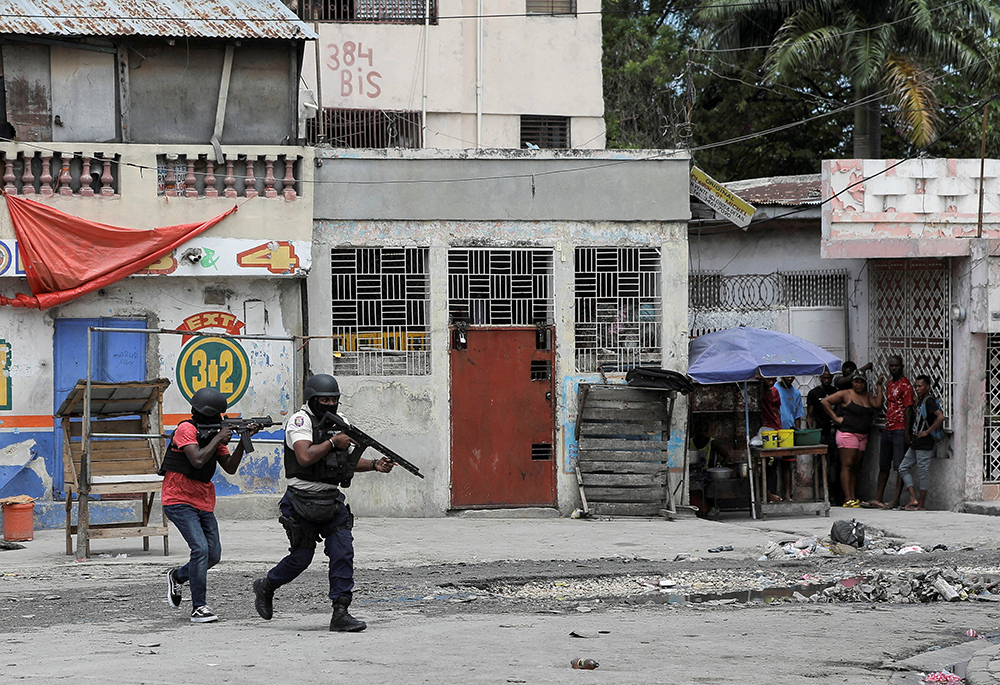
Police officers hold their position as they take part in an anti-gang operation amid gang violence March 3 in Port-au-Prince, Haiti. U.N. human rights expert William O'Neill, who was appointed to assess the situation in Haiti in April, told reporters June 28 that a "specialized international force" is needed to help fight gang violence ravaging the impoverished Caribbean nation. (OSV News/Reuters/Ralph Tedy Erol)
Editor's note: Global Sisters Report continues its series Hope Amid Turmoil with stories starting today on Haiti, a country visited in the past by GSR staff but now deemed far too dangerous for travel. Today's stories focus on the overall situation and its effects on ministries, while an upcoming blog by international correspondent Chris Herlinger, who has visited Haiti numerous times, will deal with the issue of security risks.
Haiti is at war in all but name.
The Caribbean nation is not fighting an outside invader like Ukraine and is not yet facing an intractable civil conflict like South Sudan.

But many urban communities in the ever-struggling country are paralyzed by social disruption, their streets made unsafe due to gang violence, with large numbers of Haitians facing hunger and malnutrition, disease and early death.
"People are walking around in the streets hungry," said Sister Paesie, a member of the Kizito Family community who works in the capital of Port-au-Prince.
The security and social situation in Haiti — never good even in better times — is as grave as it has ever been, say sisters, priests and humanitarian workers who, in recent interviews with Global Sisters Report, paint a resolutely grim picture of a country struggling amid gang domination that humanitarian observers compare to terrorism.
"We think of gangs like in New York City or Los Angeles — gangs fighting over whatever, but this has gone to a full on campaign of terror," said Jonathan LaMare, chief programs officer for the international nonprofit Mercy Beyond Borders, founded by Mercy Sr. Marilyn Lacey.
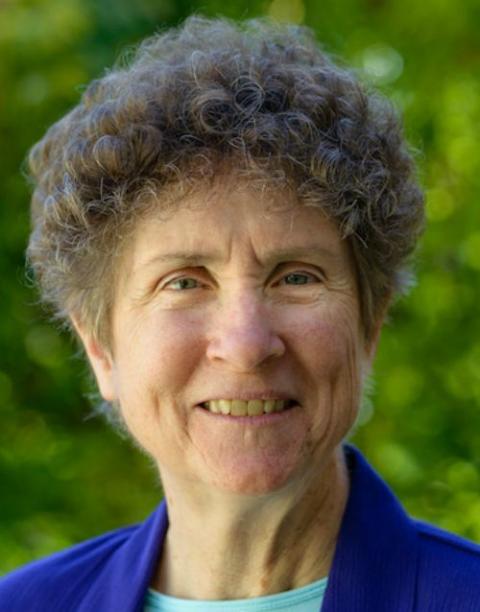
Mercy Sr. Marilyn Lacey (Courtesy of Mercy Beyond Borders)
"The word 'hope' in Haiti right now," he said, "is a bit of a dangerous word."
"It's awful," said Lacey, who is Mercy Beyond Borders' executive director. "I don't see a way forward right now."
"The gangs are in charge," Lacey said, paralyzing work and day-to-day activity, making insecurity almost omnipresent, at least in large parts of Port-au-Prince.
Lacey, whose ministry has taken her to numerous countries facing humanitarian crises, including South Sudan, said the current situation in Haiti is "the worst one I've ever seen. I've been in other conflict zones and this is the worst." She said she is "more worried about Haiti than South Sudan right now, and that's saying something."
Two sets of statistics from the United Nations illustrate how stark and perilous the Haitian situation is. While 525 civilians were killed in war-torn Ukraine during the first three months of the year, at least 846 were killed in Haiti.
UN News reported Aug. 7 that "the overall situation in Haiti is catastrophic," noting that "some 5.2 million people, or close to half of the entire population, require humanitarian assistance, including almost three million children."
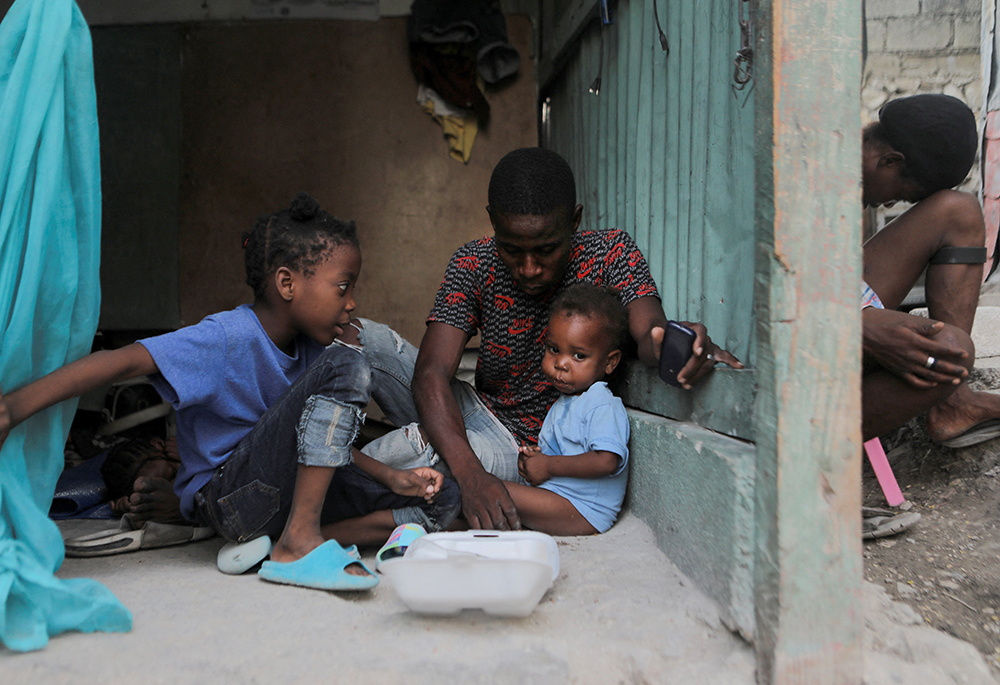
A family shares a meal at the New Church of God of Deliverance camp for displaced people, June 19 in Port-au-Prince, Haiti. The camp now harbors 120 families from various hard-hit neighborhoods since gangs have expanded their turf and now control communities where some 2 million people live. (OSV News/Reuters/Ralph Tedy Erol)
William O'Neill, a United Nations independent expert on the situation of human rights in Haiti, said at the conclusion of a fact-finding tour in June that he found a country "bruised by violence, misery, fear, and suffering. The human rights situation is dramatic, all rights are violated. Gangs continue to terrorize, especially in more than half of the capital Port-au-Prince, which has become a lawless zone."
Ministries and humanitarian efforts — particularly in and around the capital of Port-au-Prince — are all slowed or halted because of the violence, and many ministries have been affected by threats of kidnapping and extortion.
"This life is very miserable," Sr. Denise Desil, the mother general of the Little Sisters of St. Thérèse of the Child Jesus in Haiti, said in a telephone interview. "Oh, my goodness, it's not good."
Like nearly everyone interviewed, Desil believes some kind of outside intervention — be it military or policing — may be necessary for some kind of initial order and stability, as there is no effective operating government in Haiti right now.
Stability is still a long way off, though. The gangs have grown in power since the July 2021 assassination of Haitian President Jovenel Moïse. His murder is often cited as something of a trigger point for the escalation of violence — Haiti has not had a president since his death — though gangs were already flexing their strength prior to the president's death. Overall, Haiti has a long history of impunity and human rights abuses committed by government forces.
A severely weakened national police force cannot provide "a proportional response to the gangs," said one Haitian humanitarian administrator who works with the Sisters of Charity of St. Elizabeth and calls the overall situation nearly "hopeless."
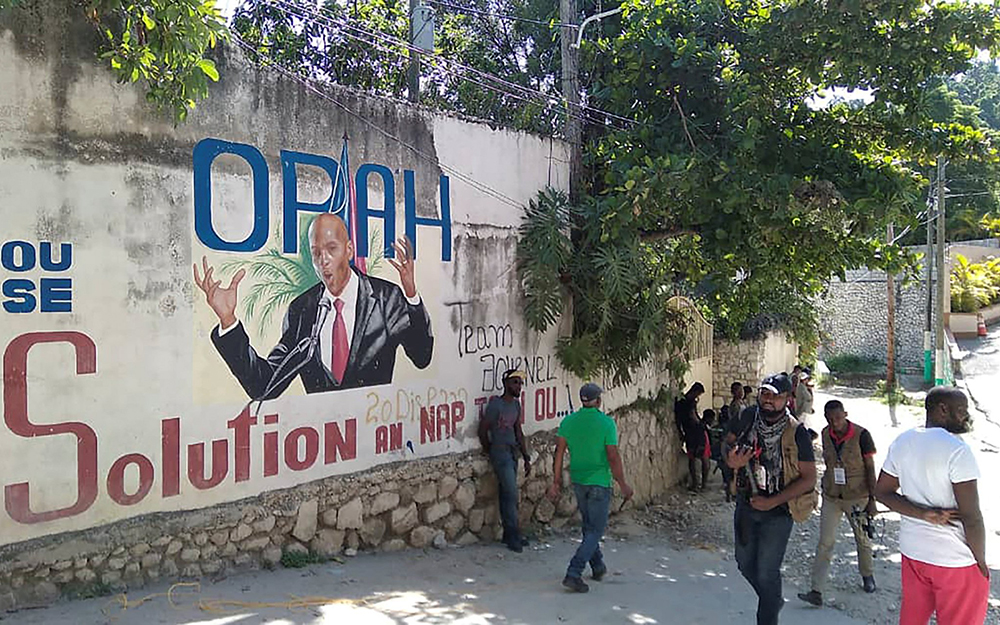
People walk past a wall with a mural depicting Haitian President Jovenel Moïse July 7, 2021, in Port-au-Prince. Moïse was assassinated in an attack in the early hours of July 7, 2021, at his home outside of the capital, Port-au-Prince, the prime minister said. (CNS/Reuters/Robenson Sanon)
Strong support for foreign intervention
Given that, it is not surprising that a recent poll conducted by the Haiti-based Alliance for Risk Management and Business Continuity, or AGERCA, an independent group that helps businesses and civil society identity risks, said that more than 6 in 10 Haitians — 63% — support an outside international force, with nearly 68% saying that the Haitian National Police cannot take on the gangs alone.
The United Nations is debating what such an action might look like. Among the possibilities being discussed is a multinational police force led by Kenya — a proposal that has the backing of the United States.
On Aug. 15, United Nations Secretary-General António Guterres told the U.N. Security Council in a letter obtained by The Associated Press that the situation in Haiti "requires a range of coercive law enforcement measures, including active use of force in targeted police operations against heavily armed gangs."
Whether such measures would be sufficient to quell the violence is an open debate. Humanitarian and ministry personnel said such a force still might not be able to do much in the face of rampant violence, and that many Haitians would welcome a robust military presence — not just police — even with the checkered history of past interventions from the United States.
And while some within the country believe that an outside intervention would be inappropriate, particularly given the history of foreign dominance over Haiti, a number of observers say that is a minority view.
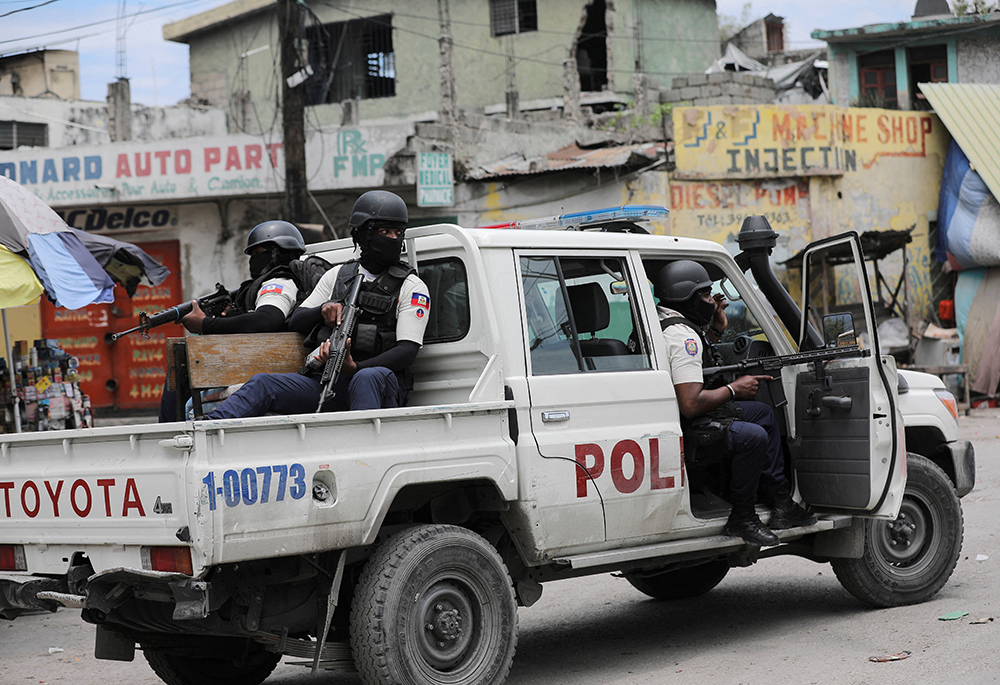
Police officers on patrol take part in an anti-gang operation amid gang violence March 3 in Port-au-Prince, Haiti. (OSV News/Reuters/Ralph Tedy Erol)
"Everybody's first question is 'Why a police force and not a military force?' " said Sister Paesie. "People believe the police are not powerful enough to overcome the gangs."
There are thorny and complex reasons for the dominance of the gangs, observers say. In the absence of a functioning government, politicians vying for political dominance are often seen as using gangs for expansion and control of territory, particularly in Port-au-Prince.
In a country without a functioning government and a secure economic base, it is easy for gangs to take "more control like a business and trying to get more of a monopoly," said Dawn Colapietro, a lay missionary and program coordinator for the Sisters of Charity of St. Elizabeth in New Jersey.
With more territory, there is the chance for "business expansion" fueled by ransom money, graft and corruption. "Kidnapping and gang activity is a business in Haiti in the absence of a business and an economy," she said. "And in the absence of leadership in a political vacuum, it's an invitation for somebody else to assume control over the country."
LaMare of Mercy Beyond Borders notes another complication: "[As] terrible as these gangs behave and their actions are," he said, "they're also the only people in a lot of communities who are bringing food to people." As a result, it will not be easy to simply dislodge the gangs from their positions of day-to-day control over areas.
Given such dynamics, even those who praise Haiti's fabled resilience say overcoming the challenges will be a tall order.
The country wants to be safe, self-governing, democratic and prosperous with Haitians in control and human rights respected, all say.
"It's obvious that human rights have to be protected," Sister Paesie said. "We have been violated so badly." But, she cautions, "the international community must stop being in denial and doing as if Haiti is ready for democracy. It's not." She said decades of "ridiculous elections" have been nothing but "rotten and corrupt" exercises that have led to corruption and poor governance.
For now, observers say, guaranteeing security is all-important. Other matters can wait — though as Annemarie O'Connor, a lay representative at the United Nations of Passionists International notes, whatever is done must "have a human rights lens on it. There have to be protections on whatever is done there, especially with regards to sexual violence against women."
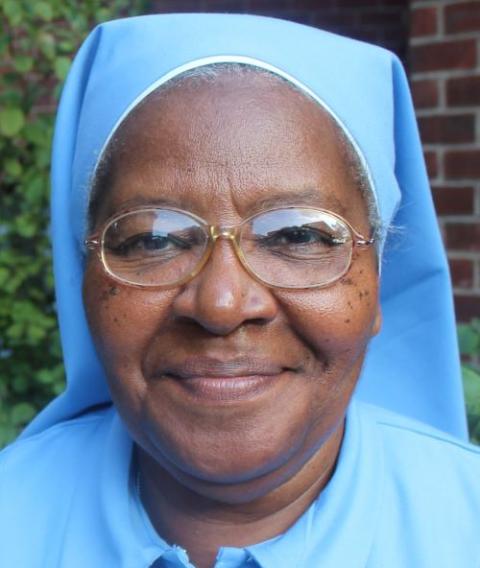
Sr. Denise Desil of the Little Sisters of St. Thérèse of the Child Jesus in Haiti (GSR file photo)
Desil, whose congregation's mother house is in Rivière-Froide, a suburb of Port-au-Prince, would like all gang activity to stop but added that even just unblocking the roads would be welcome.
"If any sister goes to Port-au-Prince," she said, "I worry and become stressed."
Not all of the country is under siege
There is a modicum of good news: Day-to-day life and ministries outside the Haitian capital — a crowded, teeming, densely populated metropolitan area of 3 million — are less challenged by the tensions that have paralyzed Port-au-Prince.
Desil said her congregation's ministries outside of the capital — focused on schooling and community health care — continue, though she noted that the slowdown and blockages in delivering food means that it is harder to provide lunches for students attending classes. "When children are hungry, they can't learn," she said. "It's a big problem."
Meanwhile, Mercy Beyond Borders, whose programming focuses on educating girls, works in Gros-Morne, a community in the Artibonite Valley region about four hours north of Port-au-Prince*.
So far, the town has not experienced the level of gang activity common in Port-au-Prince.
"We are sort of fortunate in the sense that we don't have gangs roaming our streets and attacking people actively in that part of where we are," said LaMare. But he cautions that "the road to our immediate north and south are often blocked and we have had relatives of [program participants] kidnapped on public transport buses in the past year."
It is not uncommon, he said, for gang members to hold an entire bus hostage, rob its occupants and rape female passengers.
The program's nine university scholars — young women attending universities, including several in Port-au-Prince — have also faced challenges.
Advertisement
"Their studies have been interrupted, obviously over and over and over," LaMare said, adding that parents have asked the program whether it can help families get the young women out of Haiti and into the United States — something that LaMare said is not possible to do "in any kind of equitable way." Now the program is working to include participation of universities outside of Port-au-Prince.
Some note that it is not accurate to portray the entire capital city as totally paralyzed. "While the situation is extremely dangerous it is not omnipresent," said Gerry Straub, the founder of Santa Chiara Children's Center, a home for abandoned children in Port-au-Prince.
"The gangs control the peripheries of the city and pockets of neighborhoods around the city. I travel on the streets every day," he told GSR in an email.
"My objection to what I see and hear in all the news coverage is that gangs control all of the city of Port-au-Prince," Straub said. "This is manifestly false."
However, Straub added that, "saying it is false does not mitigate the threat the gangs pose. The gangs control the peripheries of the city and their power is also concentrated in certain sections of the city, known as 'red zones.' "
The population knows "these pockets of gang-controlled neighborhoods spread throughout the city and avoid them," he said. "But the gangs can also randomly strike anywhere in the city, accelerating the fear factor."
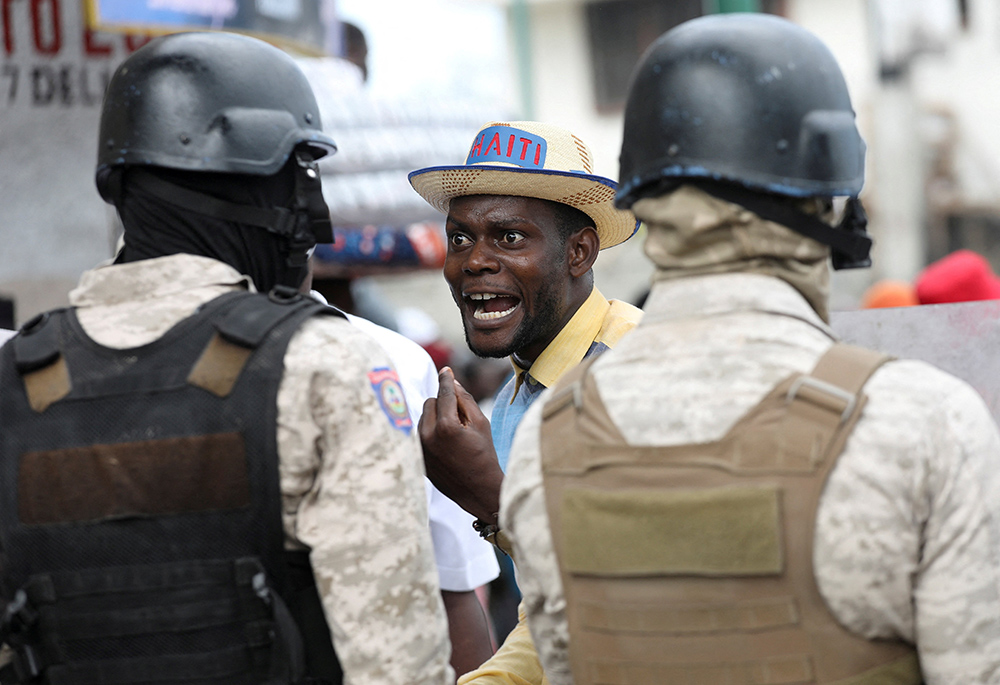
A demonstrator shouts at police during protests demanding that the government of Haitian Prime Minister Ariel Henry do more to address gang violence, including constant kidnappings, March 29, 2022, in Port-au-Prince. A coalition of religious orders working at the United Nations has written to U.N. officials, asking them to address the reign of terror of armed gangs they described as "diabolical, frightening and unacceptable." (CNS/Reuters/Ralph Tedy Erol)
In the face of such fear, Haitians are making it known they are fed up.
A violent self-defense* movement called Bwa Kale has emerged in which some Haitians "have decided to take 'justice' into their own hands," New York-based Human Rights Watch noted in an Aug. 14 report on Haiti.
Others, meanwhile, have taken to the streets of Port-au-Prince in nonviolent protests, demanding security and protection in the face of the deteriorating situation.
Wilene Joseph was among those participating in an Aug. 7 demonstration in which marchers wore masks to help conceal their identities. Joseph, a street vendor, told an Associated Press reporter: "I can't work. I can't go out. I'm like a prisoner in my own home."
Joseph, 36, and a mother of two, ages 5 and 7, said she joined the peaceful demonstration out of sheer frustration.
"I worry about my kids being shot because bullets are flying from all directions all the time," Joseph told the AP. "The situation is unacceptable."
Like a war zone: Increases in rape, sexual assaults
One reason the situation has become especially worrisome for women is an uptick in sexual violence — a dynamic Haiti now shares with war zones like Ukraine and South Sudan. "Women and girls," O'Neill said, "continue to be raped by gangs, often collectively, to establish their control over the population."
One rape survivor told Human Rights Watch: "They rape us because they are in control, because they have guns, because there is nobody to defend us. There is no police or state." In its report, the human rights group said: "To those living in affected areas, the police and other authorities scarcely exist."
An October 2022 United Nations report said that gangs have "resorted to sexual violence as a weapon to disrupt the social fabric by targeting women and girls crossing 'frontlines' or moving across neighborhoods on foot or in public transport to carry out their daily livelihood activities, such as going to work, to marketplaces or to schools."
The report said the reason gangs are able to commit such acts of sexual violence and other human rights abuses is due mainly to "widespread impunity and ease of access to high caliber weapons and ammunitions trafficked from abroad."
Catholic religious such as Sister Paesie who live and work in Cité Soleil, which was already one of Port-au-Prince's most dangerous areas before the escalation of violence, say that is a deeply troubling dynamic and all too common, as is domestic abuse and violence of all kinds.
Also disturbing, said Sister Paesie and Fr. David Fontaine, a diocesan priest, is how polarized neighborhoods have become. In addition to violence, such areas face the challenges of flooded and garbage-filled canals and a lack of clean water — all leading to chronic disease.
Gang activity is nothing new in Cité Soleil. But a decade ago, Fontaine said, there was still general peace between members of different neighborhoods. "It was only the gangs doing battle," he said. "But the civil population were at peace among themselves. Now, there is a true division … like a civil war." Gangs have fomented the divisions, he said, with neighborhoods becoming enemies and gangs portraying themselves as saviors to residents.
A warlike situation has exacerbated long-standing problems and challenges, Paesie said. "Food and housing, these are not new problems, but it has been worsened by these years of conflict." People who had been surviving as street vendors can no longer work.
And in a part of Cité Soleil named after the New York City borough of Brooklyn "nearly every family have been victims during this war. Someone has been killed or several people have been killed [in a family]," Sr. Paesie said.
Yet even amid such turmoil and lament, small acts of grace and kindness continue. Sister Paesie recently took some children on a beach outing and was prepared to pay some cash to gang members blocking the roads in order to allow the group to pass through.
"When they saw me, one of them gave me back the money and he told me, 'Buy something for the children, Sister. Buy something for the children, Sister.' Then he let us go.
"You never know," she said. "You never know how it's going to turn out."
*Corrections have been made to clarify the distance from Gros Morne to Port-au-Prince and what kind of defense movement Bwa Kale includes.





